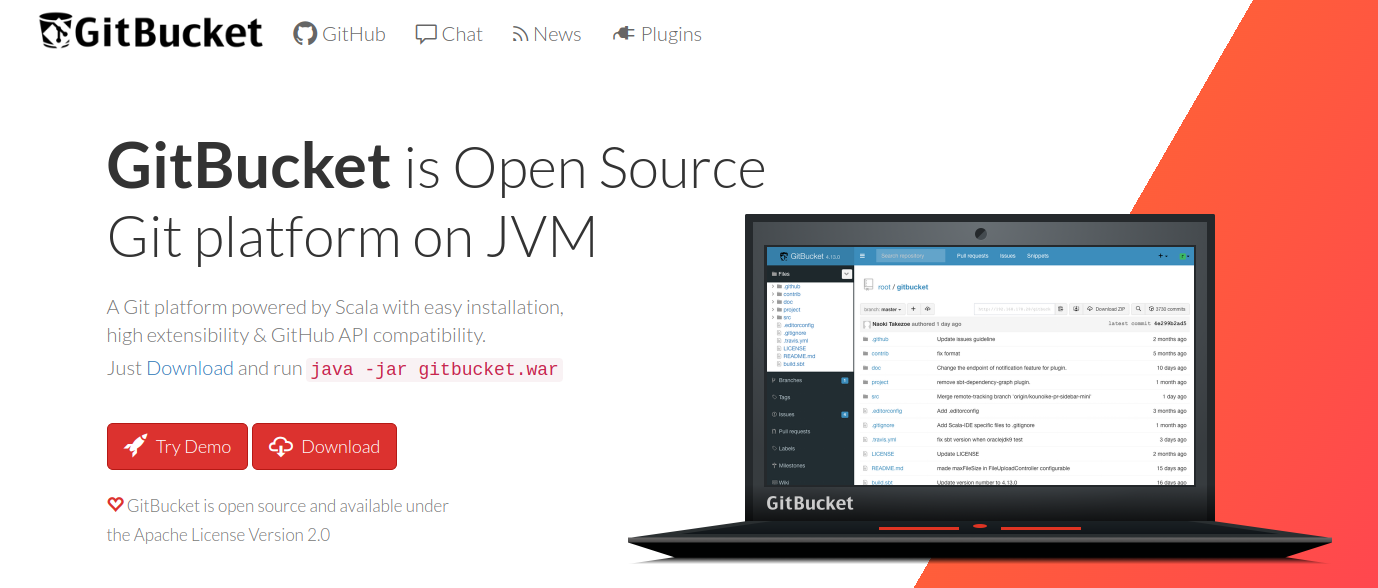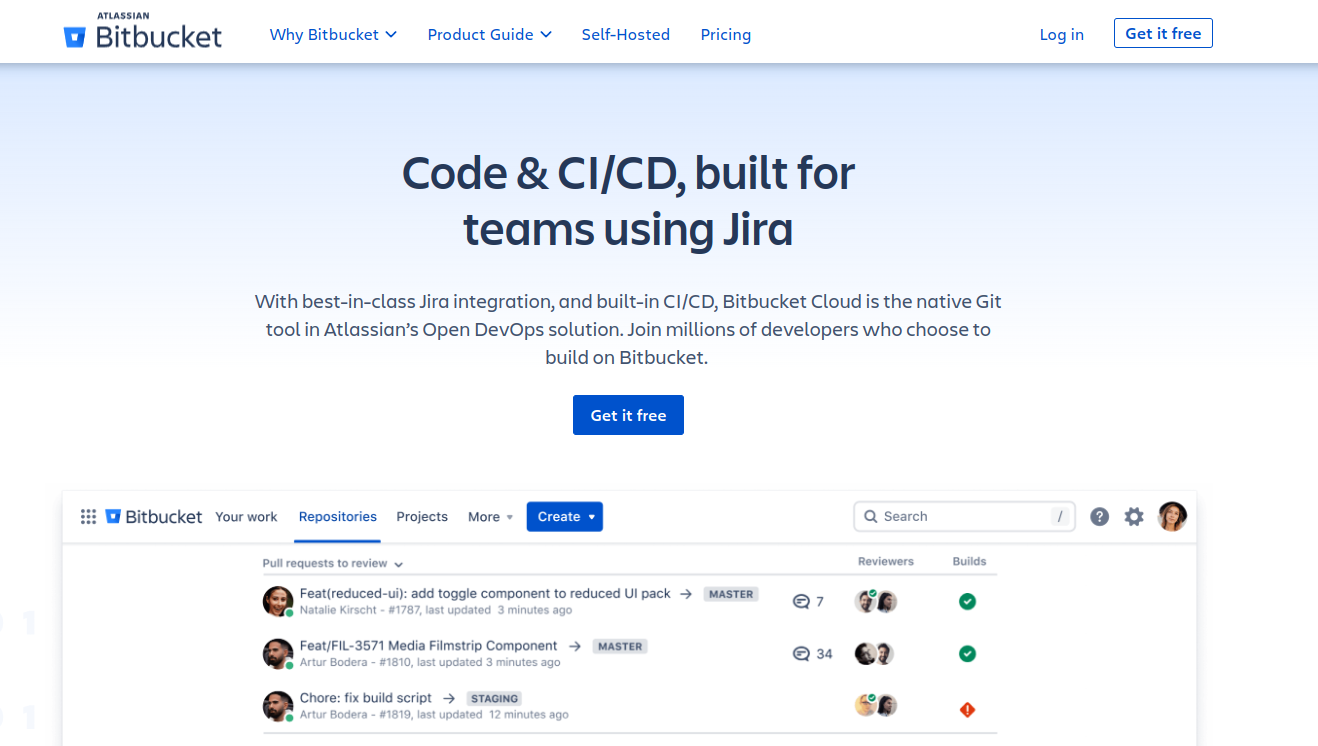For the longest time, GitHub has been the leading Internet hosting service for software development. With over 64 million users as of October 2022, it remains at the top of the version control “food chain.” This isn’t to say that people aren’t looking for alternatives to GitHub.
A developer’s nature is to always seek a better and more efficient solution to a problem. If you identify with that sentiment, you might want to stick around because we will be discussing some of the most popular GitHub alternatives to date. Let’s take a look at what each of these services has to offer, and see if any of them will be a good fit for you.
Git Bucket
Let’s start with what most closely resembles GitHub, both in form and function. Git Bucket is a self-hosted, open-source platform that was created for developers all over the world looking for a low-cost, high-quality repository service.

Git Bucket is extremely simple to set up and provides an easy repository search experience, as well as wikis, fork-pull requests, and other features. Excellent for teams collaborating around their source code, allowing them to seamlessly trace every step of the development process.
And the best part? It’s completely free to use, making it ideal for developers working on smaller projects on a budget.
SourceForge
This open-source development service, which is hosted on Apache and Allura, currently hosts over 500,000 open-source projects. Developers can use SourceForge to create and publish their projects, as well as download other open-source projects found on the platform.

As a networking platform for businesses and developers, this software also allows you to sell your projects to business owners. There are two categories available on this platform: open source and business, which covers everything from advertising and e-commerce to games and healthcare.
Explore other people’s open-source projects and see if anything you find can help you with the development of your own project as well.
Bitbucket
If you’re looking for a service to help teams plan their projects, Bitbucket should be your first choice. Bitbucket is a simple tool that allows team members to collaborate and test code, as well as assign and complete tasks. Bitbucket integrates with JIRA Software, making it much easier to track the development process from start to finish.

Bitbucket offers a free plan for smaller teams (up to 5 members), but if you’re a larger enterprise, you can get a custom quote based on your project’s requirements. In addition, your team gains access to an unlimited number of private repositories, as well as the ability to store large files and media.
Beanstalk
Finally, let’s take a look at Beanstalk. This free version control platform allows you to directly add files and create branches in your browser without having to run a client. Beanstalk promises to help you with the entire workflow—from the very beginning of the project to its final deployment.

It’s ideal for developers looking to create and manage repositories, as well as collaborate with other team members by writing and reviewing the source code. Beanstalk makes it easy to deploy your code in multiple environments as well as share your progress with your clients and team members.
Conclusion
Although some developers swear by GitHub, it’s clear that after years of being the dominant open-source platform, it has finally faced serious competition. Especially since many of these services provide the same features for free.
Most of the GitHub alternatives we’ve discussed today are either completely free or have a free plan, so why not give it a shot? It never hurts to step outside of your comfort zone once in a while, so make sure you check out these hosting service platforms ASAP!
Related posts
New Articles
Android Not Opening PDFs – Causes and Easy Fixes
Imagine settling down for a cozy evening, ready to dive into that important PDF document you’ve been meaning to review….


